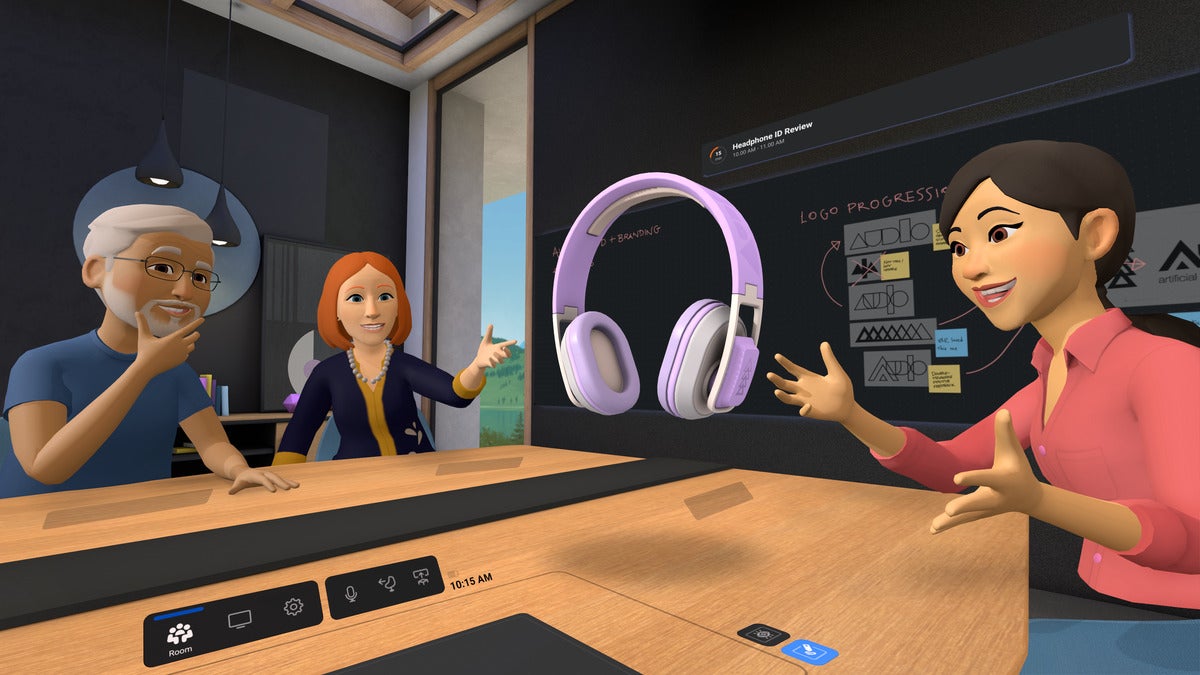Often associated with gaming, virtual reality may one day have a place in the office too, providing a more immersive experience and greater sense of presence than is possible with a video call.
That’s the idea behind Meta’s Horizon Workrooms, a virtual 3D environment where colleagues can meet and interact just as they would in person, regardless of where they are physically located. Although a VR headset isn’t required to participate in a Workrooms meeting, when accessed via the company’s Quest Pro — a high-end headset launched last year and aimed at business use — attendees’ avatars are capable of a range of expressions, due to the headset’s five internal infrared sensors, which can track a user’s eye and facial movements.
It’s also possible to work solo in a virtual private office via the Workrooms app, which is publicly available in beta and provides access to a user’s computer monitor and two additional screens.
Meta (formerly Facebook) has committed billions of dollars to development of VR technologies in recent years, but it’s early days for the use of VR as a collaboration tool, and the technology is still evolving. There are currently some limitations around virtual environments when it comes to everyday workplace use, particularly on the hardware front. The Quest Pro’s weight makes extended use uncomfortable for some, while battery life, which Meta states can last a little over two hours for productivity purposes, is another constraint to regular use.
Cost is also a factor: most businesses would need good reason to pay $1,000 (reduced from $1,500 at launch) for each Quest Pro device. And there are question marks over data privacy — not exactly a strong point for Meta historically — with the Quest Pro’s eye and face tracking able to collect a significant amount of user data. (Meta says that this data does not leave the device, however.)
The Horizon Workrooms software is also a work in progress, with no date set for general availability, even if the app is now widely available for use. Ahead of a full launch, Meta is continuing to refine the user experience, which currently lacks the simplicity of joining a video meeting, for example.
Meta
Mike LeBeau, founder and product lead, Meta Horizon Workrooms
But while it remains to be seen whether VR will become commonplace in our working lives any time soon, the technology has plenty of promise when it comes to enhancing the meeting experience. As part of a demo of Workrooms and the Quest Pro headset, Computerworld recently spoke with Mike LeBeau, founder and product lead for Horizon Workrooms at Meta, about designing virtual environments and why VR could become the preferred choice for team meetings in the future.
Following are excerpts from that interview, edited for clarity.
On designing a VR platform for work
“We really felt that this technology has a lot more potential than just gaming. We wanted to figure out how we can…
2023-07-05 23:48:03
Link from www.computerworld.com rnrn
